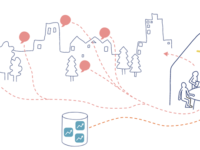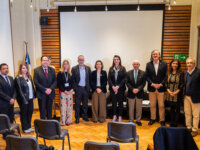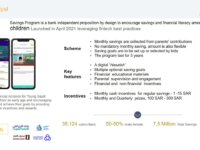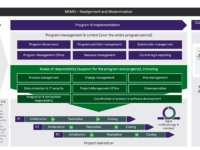Futures and foresight methods are fundamental tools to inform decision-making and public policy in order to consider a wide range of future possibilities. The creation of a Latin American Future Network seeks to articulate existing efforts from many countries and enhance capacity building in the region, since capacities are still not well developed. This will benefit citizens by improving public sector services and future-proofing policies aimed at the population wellbeing.
Case Study Library
Where innovations are collected and shared to disseminate and replicate good ideas

Innovations:
0
This website, as well as any data and map included herein, are without prejudice to the status of or sovereignty over any territory, to the delimitation of international frontiers and boundaries and to the name of any territory, city or area.
A savings Program that is designed to encourage savings and financial literacy amongst Saudi children and providing financial inclusion for Young Saudi population (>18) from an early age and encouraging them to save and achieve their goals by providing attractive incentives and rewards and leveraging fintech best practices while applying behavioural economics.
Case Study
Itla View – Crowdsourcing and AI-based digital tool for knowledge management and systems…

Itla View is a digital tool to help local services for families with children to manage their activities better using up-to-date data, to anticipate the need for corrective services and identify opportunities for preventive work. It enables different actors to form a shared holistic picture of the well-being of children, young people and families in their area. Itla View collects observations sent by field actors on the daily lives of children and families. It utilizes artificial intelligence to…
Karolinska University Hospital is piloting a new model for nurse-led innovation. The model consists of a framework for enabling nursing organisations to work with innovation and a nurse-led innovation hub concept, where nurses can collaborate with the industry to co-develop solutions for healthcare. Through this, the hospital puts nurses in the driving seat of innovation in healthcare to both develop better solutions for healthcare and promote a sustainable work life for frontline staff.
The NEMO program is a forward-thinking initiative reimagining Hamburg's public registry offices to meet future demands by integrating digital transformation with user-centric services. Developed in response to an urgent need for modern, efficient public services, the program orchestrates a holistic transformation by managing 16 interconnected projects aiming to digitize citizen interactions by including agile management, cross-sector collaboration, and advanced technology.
"Being new in Norway", is a prioritized life event in the Norwegian government`s digitization strategy aiming to:
Provide a holistic and comprehensive public info to the newcomers as end-users
Accelerate newcomers’ participation in work and society
Increase public resources efficiency
The website nyinorge.no/en is addressing those goals and is a hub for accessing public information to newcomers
We used foresight methodology to contribute to more long-term and sustainable service delivery.
UAsk, born from the need for seamless access to government services in the UAE, is an AI-powered chatbot transforming citizen engagement. Serving residents, businesses, and visitors, it leverages generative AI, particularly ChatGPT, for real-time, multilingual, and reliable information. Its innovation lies in delivering an inclusive, user-centric, and efficient digital experience, revolutionizing interactions with diverse government services within the digital governance realm.
The City of Austin has piloted an anticipatory governance tool named the Civic Research Agenda (CRA) to help the City become future-ready in the face of complex civic challenges.
The CRA leverages a strategic foresight methodology to proactively plan for plausible future scenarios and identify implications for decision-making today, thus moving the City away from reactionary and short-sighted policy making and enable it to “look around the corner” to future challenges and opportunities.
Case Study
Osaamistarvekompassi: Tackling Skills Mismatch through AI-assisted Skills Needs Anticipation

The Service Centre for Continuous Learning and Employment (SECLE) was established to anticipate the skills needed in working life and to fund competence services to proactively improve the matching of skills and jobs. SECLE’s new online service, Osaamistarvekompassi (Skills Needs Compass), provides anticipatory data on job transitions, along with insights on near-future skills needs derived from AI-assisted data mining, in a user-oriented way. The service guides the allocation of SECLE’s…
Rainlevelr is a joint approach to reduce the risk of flooding. By utilizing the water basins of horticultural companies, the Delfland horticultural area can absorb heavier downpours, thus preventing flooding for both the businesses and the surrounding area. In Rainlevelr, regional authorities, ‘Glastuinbouw Nederland’ and horticultural companies collaborate closely. The uniqueness of this innovation lies in the collaboration among various stakeholders involved in the use of water buffers…



